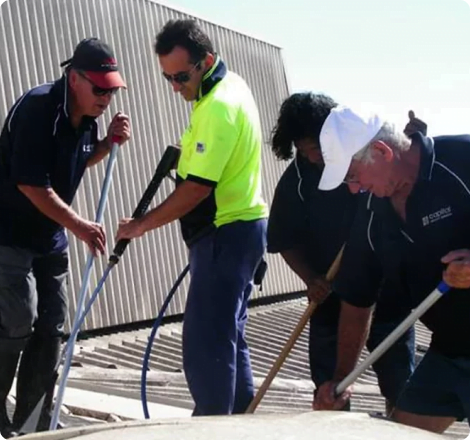Understanding what water damage insurance covers
Water damage can occur at any time, and the effects can be devastating. Having a comprehensive understanding and your specific insurance cover, regarding water damage, which is often referred to as ‘escape of liquid’ and flood or storm damage, is imperative to ensure you’re not unnecessarily paying for expensive repairs that you should be covered for, as well as knowing what repairs you will have to foot the bill for.
The purpose of this blog is to provide a brief overview of what insurance typically covers. However, everyone’s insurance policies vary, and you need to check yours in detail to know exactly what you are covered for. Your insurance company should have provided you with what is often called a Product Disclosure Statement outlining what you need to know about your policy. Don’t file this document away without reading and understanding it. Understanding what is in your insurance Product Disclosure Statement will allow you to make any necessary changes to ensure you have the correct water damage insurance for you and your family, should you ever be faced with a flood or water damage of any sort and need to make a water damage insurance claim.
What is generally covered?
In most Australian home and contents insurance policies, water damage is covered under two categories: accidental escape of liquid damage and storm or flood damage. However, there are important distinctions to be aware of:
- Accidental escape of liquid/water damage – This includes sudden and unforeseen incidents such as burst pipes, leaking appliances, or an overflowing bathtub. If the damage occurs without warning and is reported in a timely manner, insurers are usually willing to cover the repair costs. Also, if the damage has been gradual and it was not reasonable for you to have known that it was occurring, such as a slow gradual pipe leak which did not show any gradual signs of visible water damage, you will most likely be covered.
- Storm or Flood Damage – Many policies cover water damage caused by storms, hail, or flooding. However, it’s important to check the fine print in your Policy or Product Discloure Statement, as flood coverage often requires a specific endorsement, and you might need to increase cover to have it available. In addition, some insurers may have exclusions for flood damage depending on the location of your property. Educate yourself so you know your specific cover.
What is not covered?
While water damage is often covered, certain circumstances are typically excluded from standard insurance policies:
- Gradual Damage – In my most cases insurance doesn’t cover water damage resulting from long-term neglect or wear and tear, such as leaks that develop over time and aren’t addressed promptly or are ignored.
- Lack of Maintenance – If your building is in poor condition and is not properly cared for and maintained and this is the cause of your water damage, you may not be covered or you may only be covered for part of the damage. If the water damage results from improper maintenance (for example, not cleaning gutters regularly or not servicing appliances), the insurance company might deny your claim. If it if found that gutters, flooring, walls, ceilings roofs or other structures in your home are in despair and are loose, falling, missing, rusted or have plant matter growing out of them and aren’t structurally sound your water damage insurance claim may be rejected. It is your duty to keep your home in good condition and well maintained.
- Previous Damage – If you have not addressed previous damage to your building, and it is affected by water damage, then it is highly likely that your water damage insurance claim will be questioned and will likely be rejected.
- Deliberate Acts – Any water damage caused by deliberate acts, is typically not covered under standard policies.
Understanding your specific water damage insurance policy is of paramount importance to avoid disappointment should you be affected by water damage or flooding.
The importance of reputable water damage restoration Companies
A restoration company like Capital can play a crucial role in the water damage insurance claim process. Not only can we provide a thorough inspection and documented damage assessment, but our professional water damage restoration technicians follow industry standards, which are required by insurers. Furthermore, we provide detailed reporting to assist you with your water damage insurance claim and can collaborate with assessors to implement the best fix to your specific water damage issue.











